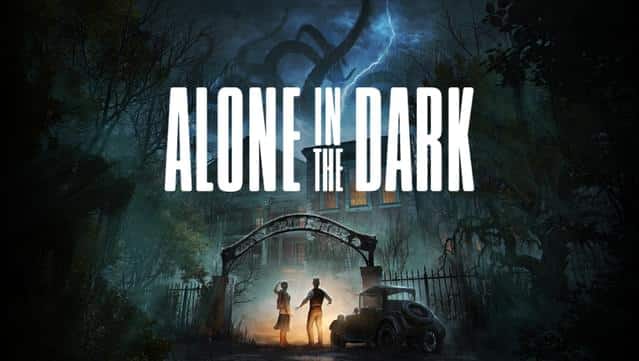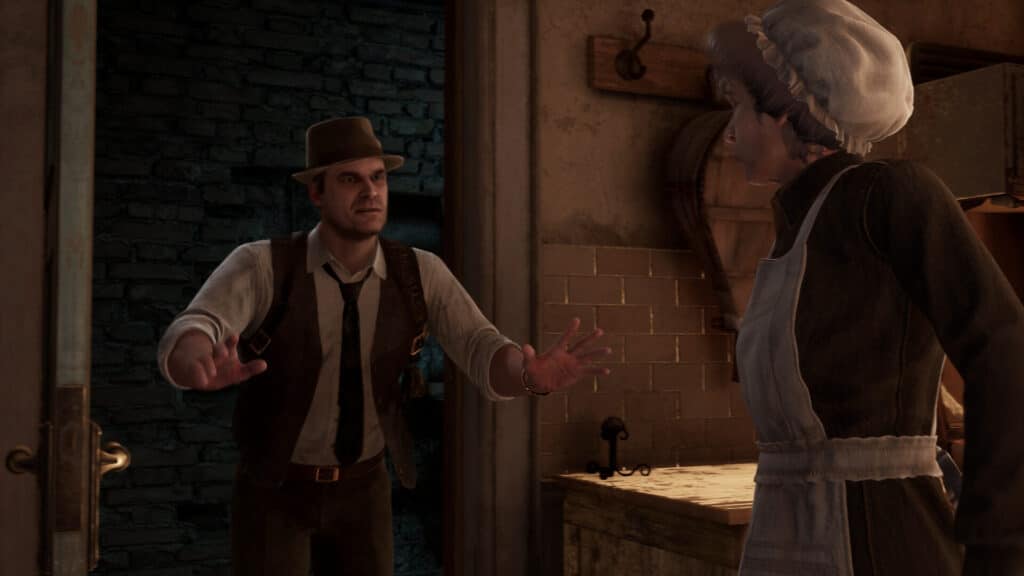

The Alone in the Dark series has remained a cornerstone of the survival-horror genre since its inception in 1992. Riding the current revival trend, Pieces Interactive joined this movement by rebooting Alone in the Dark. Given the success of recent reboots, such as Resident Evil 2/3, anticipation was understandably high for this beloved franchise.
Alone in the Dark follows Private Detective Edward Carnby and Emily Hartwood as they investigate the disappearance of Emily’s uncle, Jeremy Hartwood, within the confines of Derceto Manor. Players assume the role of either Emily or Edward before embarking on their quest. However, contrary to expectations, the story offers little incentive to replay because the story plays out the same regardless of which character you select.


Upon entering Derceto Manor, players immediately face a series of puzzles that protect various locations. Alone in the Dark offers an abundance of puzzles, a feature that I find particularly enjoyable and is reminiscent of what has been lacking in recent survival horror reboots. These puzzles often entail cross-referencing notes/items, rearranging tiles/slabs to form a picture, and locating keys to unlock doors.
Exploration is actively encouraged in Alone in the Dark, with players often navigating back and forth between solved puzzles. To make things easier, a map of Derceto Manor is provided. Along with showing players the layout, unsolved puzzles are shown to prevent players from being stuck. This map resembles those utilized in Resident Evil, employing color-coding to indicate whether a room’s puzzle has been resolved or if an encountered door remains locked.
One intriguing aspect of Alone in the Dark is its transition from Derceto Manor to a twisted supernatural realm. These alternate worlds offer captivating environments that contribute to the game’s eerie atmosphere. However, while the setting effectively sets the stage for fear, enemies encountered in an alternate reality fail to deliver on the expected intensity of combat. Rather than instilling a sense of dread, adversaries appear monotonous and lack the chilling presence in most survival-horror games.
In Alone in the Dark, the primary focus is exploration and puzzle-solving rather than combat. However, this facet is one of the most frustrating elements of the game. Engagements feel clunky and lackluster, resulting in unsatisfying encounters. Dodging feels haphazardly implemented, and attempts at stealth gameplay fall short of expectations. Players anticipating diverse weapons will be disappointed by the limited selection as well. Although melee options, such as shovels or axes, are present, their execution feels disjointed and fails to deliver a satisfying experience.
Alone in the Dark presents an enticing premise, but unfortunately, it fails to maintain momentum beyond the initial chapter. Although the game introduces intriguing characters, it struggles to sustain interest. Despite Edward and Emily being tasked with finding Jeremy, players rarely encounter other characters, leading to questions about their whereabouts. Additionally, the storyline is occasionally confusing due to a reliance on scattered notes to clarify what is happening. One redeeming aspect of the narrative is the Noir setting, complemented by voice actors who breathe life into the characters, enhancing the overall experience.
Regarding performance, I must acknowledge that the game lacks polish and requires optimization. Playing through it can become frustrating, as I’ve had to restart twice due to a glitch causing the game to crash. Thankfully, the game’s brevity allows for effortless restarts. Otherwise, I wouldn’t be inclined to invest additional time replaying it. In addition to crashes, I experienced numerous frame rate drops/slowdowns, detracting from the overall experience. Despite downloading a patch before completing this review, the issues persist. The PC version offers a subpar experience due to these crashes and slowdowns. However, players who play on Steam Deck or other handheld PCs may find the game playable at a decent frame rate, albeit with the mentioned issues.
Regarding replayability, players can finish the game in roughly seven hours. This amount will increase or decrease depending on the time spent gathering collectibles. There are a plethora of collectibles, which the game calls “Lagniappes,” scattered throughout. However, those hoping for a different perspective by playing the other character will be disappointed, as it doesn’t offer a new perspective or story to warrant a second playthrough.
Alone in the Dark: Despite Alone in the Dark's promising premise, and legacy, it ultimately disappoints. The game offers a mediocre experience, hindered by lackluster combat mechanics, a narrative that fails to fully utilize its potential by not offering multiple perspectives, and a wide variety of technical issues. Although it provides occasional moments of intrigue, particularly through its puzzles, and atmospheric setting, these are outweighed by its flaws. Consequently, Alone in the Dark may leave players feeling underwhelmed and unsatisfied. – Mark
Editor’s Note: Alone in the Dark was reviewed on PC, and a copy was provided to us for review purposes.
CD Projekt RED just showcased a spectacular tech demo of their upcoming epic fantasy RPG…
The upcoming third-person action adventure title Hell is Us has received a playable PC demo…
Stellar Blade, one of the most enjoyable action titles of PS5 that came out in…
In a recent interview with CD Projekt RED's AnsweRed podcast, co-founder of CD Projekt, Marcin…
CEO of Gearbox, Randy Pitchford, can't stop taking big losses whenever he opens his big…
HellSlave is currently free on PC for those who use Steam. If you are a…